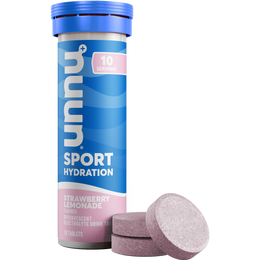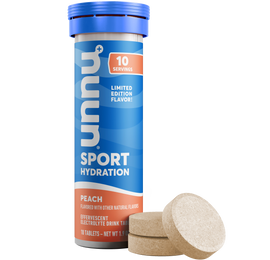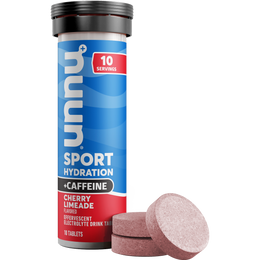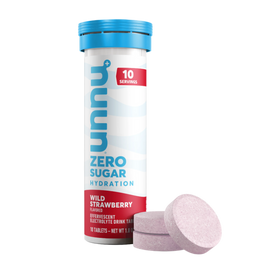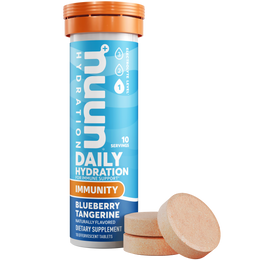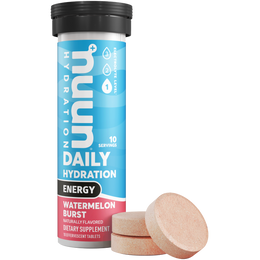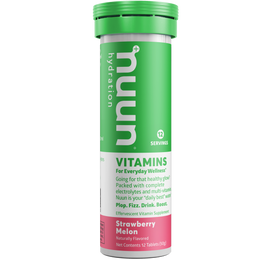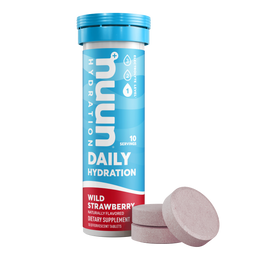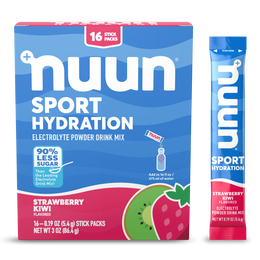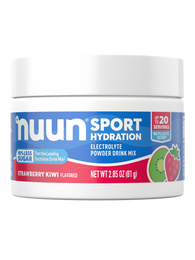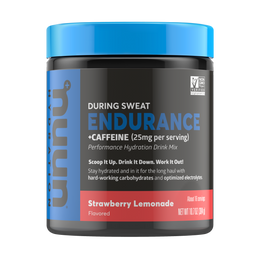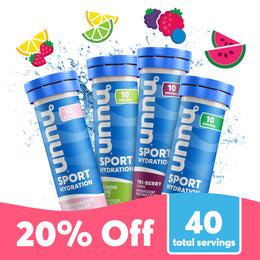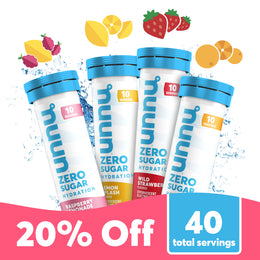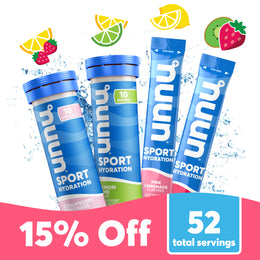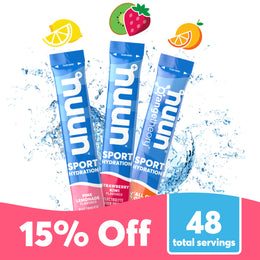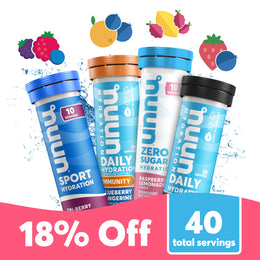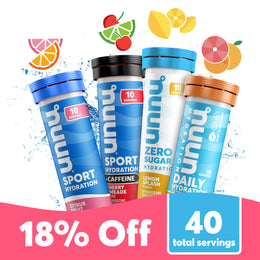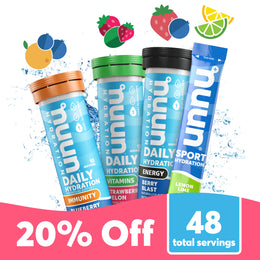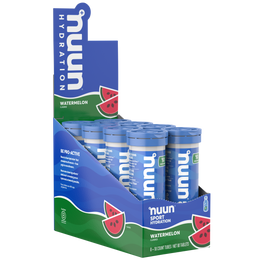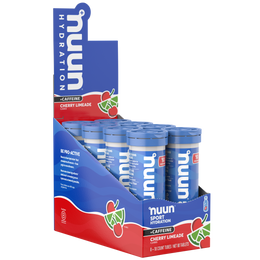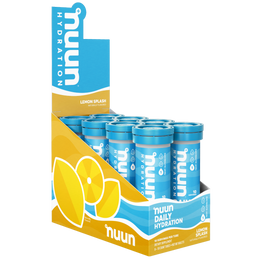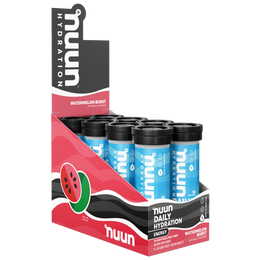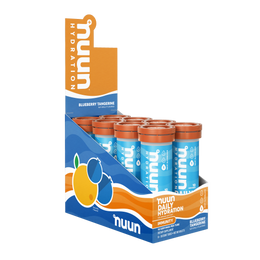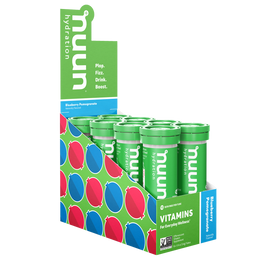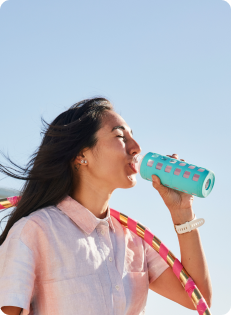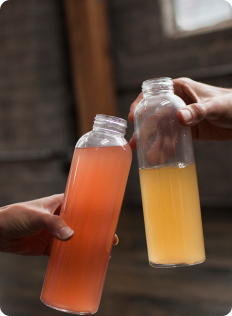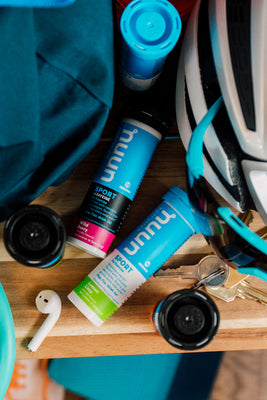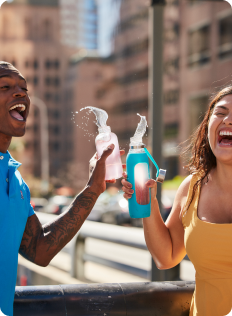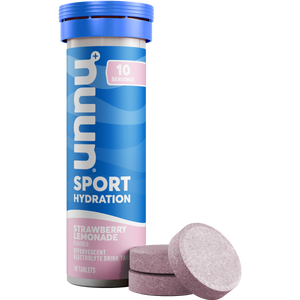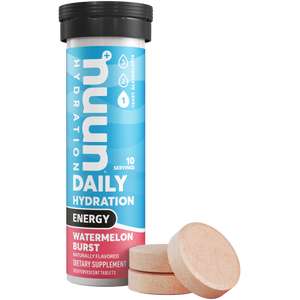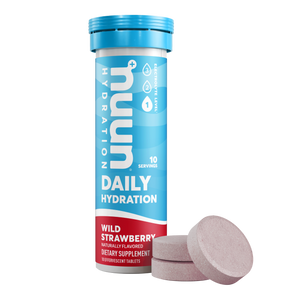Long story short: Walking is amazing. Here’s why:
What Are the Benefits of Walking as Exercise?
Can you think of any other fitness practice that is as easy and affordable as walking? Probably not. Walking is good for you because it is low impact (putting minimal stress on joints and muscles) while still burning calories, strengthening your heart, toning your muscles, and even improving your mood! A brisk 30-minute walk can burn about 200 calories, so walking can be good for weight loss if paired with mindful dietary practices.
When walking for fitness, you should aim to move at a brisk pace, fast enough that your breathing is quickened but you can still speak in complete sentences. If you wear a heart rate monitor or pedometer, you can use that to dial in the intensity, but if data like that isn’t interesting to you, don’t worry, you’ll still get the benefits of walking just by doing it.
How to Make Walking Part of Your Routine
Here at Nuun, we LOVE routines. That’s why we’ve got so many different blogs about building routines! But for building a walking routine, you only need two things: yourself and your desire to get moving.
Here’s some quick advice for building a walking routine:
-
Start Small: Get to know your neighborhood by making a few laps around your block. Slowly expand your loops to include other blocks, but keep your route circular and build on established paths to avoid getting lost or turned around.
-
Make the Time: Mark time for walks on your calendar or set a reminder on your phone. If you don’t have time for a full 30-minute walk during the day, see if you can find time for three 10-minute walks or two 15-minute walks instead.
-
Involve Others: Invite your housemates to join you or consider calling a friend and chatting while you’re out and about.
-
Hydrate: Ok, obviously we have to say this because we’re a hydration company, but seriously hydrate for your walk! Not only will being hydrated help lubricate your joints, but it will also help with stamina so you can tackle those tough hills with ease.
How to Hydrate for Walking
Our recommendation for walking hydration? Nuun Sport. Plop one in a glass about 15 minutes before you set out and sip away until it’s time to get moving. If you’re going out for a longer walk, you can toss a Nuun Sport in a reusable water bottle for a healthy sports drink alternative while you’re on the go. And remember to rehydrate once you are done with your walk! Your body loses electrolytes through sweat, and it’s important to replenish them for healthy muscle recovery.
What to Watch Out for While Walking
Now look, you probably don’t need us to tell you to look both ways before you cross the street, but you’d be surprised by the number of pedestrians involved in preventable accidents. The most common cause? Headphones. Don’t get us wrong—we love jamming out to our favorite tunes as much as the next person, but wearing headphones while walking requires some special considerations. For one thing, noise-canceling headphones are not your friend. Not only will you miss out on the sounds of the wind in the trees and the birds in the sky, but you may also miss out on the sounds of approaching cars or find yourself startled by neighborhood dogs. To maintain awareness of your surroundings, we recommend walking with only one headphone in one ear, so the other ear is free to pick up on the sounds that surround you.
To avoid injuries that develop gradually, unlike the immediate impact of being hit by a moving vehicle, you should pay special attention to proper footwear for walking. According to Brooks, running shoes should provide both stability and support on your walk. Needless to say, your walking shoes should also be comfortable. If you’re just getting started with a walking habit and you don’t want to invest in a new pair of special shoes, consider getting insoles to provide extra arch support and heel cushioning. Your knees will thank you.
So, get hydrated and get excited! There’s a big wide world just outside your door waiting for you to put on your walking shoes and explore.
Key takeaways
-
Walking is an accessible and effective form of exercise because it's low-impact, affordable, and supports heart health, muscle tone, weight management, and mental well-being.
-
Intensity matters—aim to walk briskly enough to quicken your breathing while still being able to speak in full sentences to get the most benefit.
-
Start small and build a routine by exploring short, familiar routes and gradually expanding them, while using calendars or reminders to make walking a consistent habit.
-
Hydration enhances performance and recovery, so drinking water or an electrolyte beverage like Nuun Sport before and after walking can support stamina and joint health.
-
Stay safe while walking by keeping one ear open to your surroundings and avoiding full noise-canceling headphones to reduce the risk of preventable accidents.
-
Proper footwear is crucial for injury prevention—comfortable shoes with support or added insoles can help protect your knees and prevent stress injuries over time.
